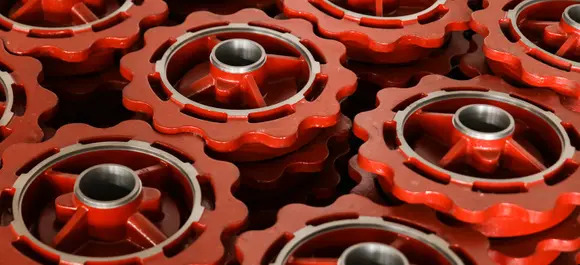Mobile:+86-311-808-126-83
Email:info@ydcastings.com
French
trash pump impeller
Understanding Trash Pump Impellers
Trash pumps are essential tools used in various industries for handling contaminated or solids-laden fluids. Commonly employed in construction, agriculture, and municipal projects, these pumps are specifically designed to manage materials that other pumps cannot effectively process. A critical component of a trash pump is its impeller, which plays a significant role in its efficiency and operational capability.
What is a Trash Pump Impeller?
The impeller is the rotating part of a pump that transfers energy from an engine to the fluid. In the case of trash pumps, the impeller is uniquely designed to handle debris, sludge, and slurries without clogging or degrading performance. The construction and design of the impeller are crucial for ensuring that the pump can move particles efficiently.
Design Features
Trash pump impellers typically feature open or semi-open designs, which allow for the passage of larger particles. Unlike standard impellers found in regular water pumps, which are often enclosed and can easily clog, trash pump impellers have wider passages to prevent blockages. This design allows them to handle solids up to a specific size—usually around 3 to 4 inches in diameter—depending on the model and manufacturer.
The materials used in constructing trash pump impellers are also pivotal. Many are made from abrasion-resistant materials, such as cast iron or high-chrome alloys, to withstand the wear and tear from handling abrasive materials. Some manufacturers employ poly materials for lighter-duty applications, while others might opt for stainless steel for enhanced corrosion resistance.
trash pump impeller

Performance and Efficiency
The performance of a trash pump, which heavily relies on the impeller, is measured by its flow rate and head capacity. The shape and design of the impeller affect how much fluid it can move and to what height it can pump the fluid. An efficient impeller design will maximize flow while minimizing energy consumption, which is crucial for operational cost-effectiveness.
Impellers can also be designed for different types of applications. For instance, some designs prioritize high flow rates, making them suitable for draining flooded areas quickly, while others may focus on maintaining pressure for more controlled applications. Understanding the specific requirements of your application can guide the selection of the right impeller design.
Maintenance and Care
Proper maintenance of trash pump impellers is essential for prolonging the pump's life and ensuring reliable operation. Periodic inspections to check for wear and tear are recommended, and any debris build-up should be cleared to maintain efficiency. Additionally, lubricating the moving parts and replacing worn-out impellers promptly will prevent more significant damages.
Conclusion
In summary, the impeller is a critical component of a trash pump, ensuring its ability to handle challenging fluids laden with solids. The right design and material not only influence the pump's efficiency but also its durability. For anyone involved in industries that require the movement of heavy and contaminated fluids, understanding trash pump impellers is essential for optimal performance and operational success. By selecting the appropriate impeller and maintaining it properly, users can ensure their trash pumps operate efficiently and effectively, meeting the demands of their specific applications.











